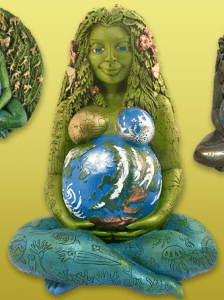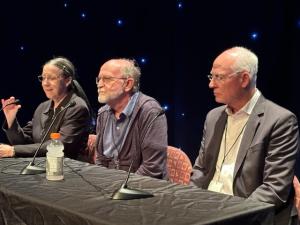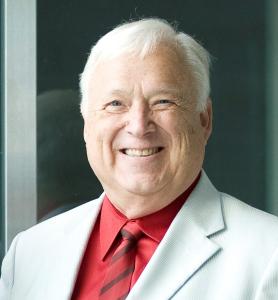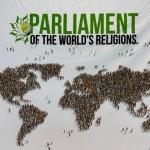Gaia’s Wizard

Gaia’s wizard. Let’s take a look.
Every religion is ultimately concerned about “the ultimate” or “the Real.” Right? Every religion supports freedom and human rights. Right? Well, such beliefs are certainly enthusiastically embraced by virtually everyone here in Chicago at the 2023 Parliament of the World’s Religions. Well, almost everyone.
This thrust toward ultimacy which I discussed in a previous post, “2023 Parliament of the World’s Religions: Ultimate Unity,” drives classical theists to integrate Big Bang cosmology and a trillion galaxies into the doctrine of creation. The God of Israel has created this unfathomably immense and magnificent universe. “How big is our God?” is a question asked by astrophysicists Michael Summers, Grace Wolf-Chase and NASA’s Jim Spann in separate sessions here. God is cosmic. And beyond Cosmic. Solo Deo gloria!
Not so, says Gaia Wizard Oberon Zell.
Gaia is the goddess of our planet, not the cosmos.

I met the wizard in the hallway and we discussed the symbolism of his colorful robe as well as his theology. Oberon Zell is a transpersonal psychologist, metaphysician, naturalist, theologian, shaman, author, artist, sculptor, lecturer, teacher, and ordained Priest of the Earth-Mother, Gaia. Gaia is the earth-mother goddess appearing in pantheons all over the archaic world from Egypt to the Americas. She gives life through the crops, love, and community. If I understood the wizard of OZ correctly, she is the primary if not the only divine force giving life to our planet and its orbiting moon.
What I find fantastically interesting here is the lack of concern for ultimacy in the goddess this Wizard OZ worships. Gaia is the deity in charge of Planet Earth. Not the Milky Way let alone the other galaxies. There is no sensibility of the Beyond at work here.
How big is God?

In another previous Patheos post, “2023 Parliament of Religions: How Big is God?“, I reported that the “Science and Religion ” track at the Parliament has provided excellent presentations by astrophysicists. They have described our immense cosmos in terms of Big Bang cosmology, a trillion galaxies, and lots of exoplanets likely to support extraterrestrial life. That is our interdependent world. That is the universe God has created. That is the relational context within which our beloved planet Earth exists.
The Beyond and the Intimate
In my systematic theology, God–The World’s Future, and in some Patheos posts, I’ve contended that the Beyond and the Intimate are two sensibilities that must be triggered for us to know that God is present. On the one hand, God is that than which nothing greater can be conceived, St. Anselm rightly contended. On the other hand, God knows us better than we know ourselves, St. Augustine rightly observed.
Now, I certainly appreciate religious creativity. And I’m fascinated with the religious fringe. But, in the case of Gaia’s wizard, I’m a tad disappointed. Gaia, co-extensive with our precious yet tiny planet, is simply too small to connect with our religious sensibilities.
Gaia’s Wizard is part of a series on the 2023 Parliament of the World’s Religions
2023 Parliament of the World’s Religions: Ultimate Unity
2023 Parliament of the World’s Religions: Planetary Hugs
2023 Parliament of the World’s Religions: How Big is God?
2023 Parliament of the World’s Religions: Food Insecurity
2023 Parliament of the World’s Religions: Gaia’s Wizard
2023 Parliament of the World’s Religions: Gaia’s Wizard
▓

Ted Peters is Distinguished Research Professor Emeritus of Symstematic Theology and Ethics at Pacific Lutheran Theological Seminary and the Graduate Theological Union. Along with Robert John Russell he co-edits the journal, Theology and Science, published by CTNS. He is author of Playing God? Genetic Determinism and Human Freedom (Routledge, 2nd ed., 2002) plus a single volume systematic theology, God—The World’s Future (Fortress, 3rd ed., 2015). Along with evolutionary virologist Martinez Hewlett, he has co-authored three books on the evolution controversy. Peters’ edited and co-edited books such as AI and IA: Utopia or Extinction? (ATF 2019) and The CRISPR Revolution (forthcoming Praeger 2023) explore technological and ethical scenarios that alert us to the need for public policy formulation before matters get out of hand. Ted has just published a new book, The Voice of Public Theology, with ATF (2023). Visit his website, TedsTimelyTake.com and his Patheos blog site on Public Theology.
▓














